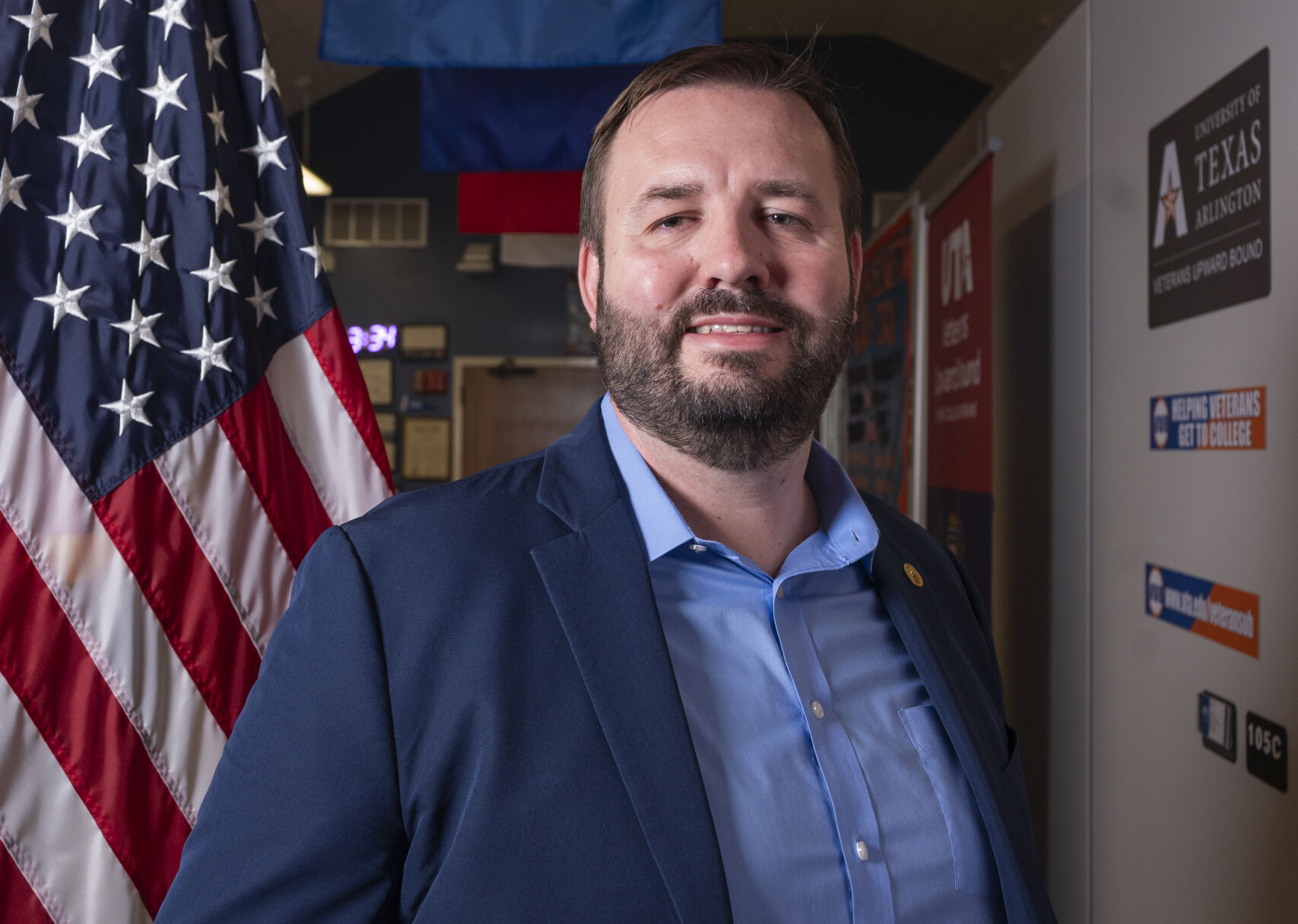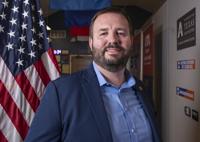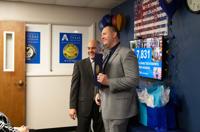
James Kumm, Military and Veteran Services executive director, will leave UTA on March 7, ending an almost eight-year run developing his new department into one consistently listed among the top five public universities in the nation for veterans.
The Military Times has listed the program under Kumm’s leadership twice as the top four-year institution for veterans and their families. Since 2017, UTA has served over 70,000 military-connected students and awarded degrees to over 10,000.
“I’m gonna miss the community. I’m gonna miss UTA, the campus. I’m gonna miss our students. I’m gonna miss my colleagues,” Kumm said. “I would say that’s definitely what I’m going to miss the most here.”
He will become vice president of Student Affairs at Tarrant County College-Northeast on March 10.
The search for Kumm’s replacement begins immediately, said Lowell Davis, Student Affairs vice president.
Laying the foundation
As an Army veteran for 14 years, Kumm got his bachelor’s degree in sociology and started working in higher education as an admissions counselor at Colorado State University Pueblo in the ’00s.
Kumm initially planned to stay at UTA for two years before returning to admissions, he said.
In his first year, Kumm shepherded his department as a centralized resource for student veterans in five core areas: transition, health, education benefits, engagement and career development.
In his second year, UTA was ranked No. 7 on Military Times’ veteran schools in the nation, and the department found its home at its current location.
“In year three, when I should have been saying, ‘OK, yup, I’m done, I’m out the door,’ we hit the No. 1 best for vets ranking,” Kumm said.
The recognition was a game changer, but he said it also showed that UTA still had work to do.
In 2021, the peer-mentoring program Veteran’s Edge was launched to help new military-connected students transition to UTA through guidance under junior and senior students.
“He goes the extra mile. He cares. He’s not just there to wait up a clock whenever he steps into the office, he actually cares and he values those who step into the office,” said Sebastian Molina, graduate student and veteran peer mentor.
Molina said he has seen Kumm listen to not just veterans but also their spouses and children, going out of his way to solve their issues.
“If I ever get a chance to work with him in the future again, I would love to work under him. He’s a really great guy,” Molina said.
Building upon the foundation
A free program counseling, mentoring and tutoring veterans called Veterans Upward Bound.
A strong relationship with the National Medal of Honor Museum Foundation.
A plan to relocate to the University Center. These are three of many foundations Kumm leaves behind for the next leader to build upon.
“He is very invested and very loyal to the veterans. He worked really hard to pick up the organization from what it was to what it is today,” said Dalton Owens, co-president of Maverick Veterans, an organization for veterans and military-connected students.

Owens was seeking a hidden gem campus like UTA following his service, he said. UTA’s program has influenced many North Texas universities, from TCC and UT Dallas to Texas Christian University and Texas Wesleyan University, Owens said.
Years of being a veteran helped Kumm learn strategizing and building tactics.
Kumm spent his first days at UTA hanging out in the Veterans Lounge at the Central Library, talking with military-connected students about what was going well and where the support for them could improve, he said.
During his short tenure as interim assistant vice president of Student Affairs last year, before the four current assistant vice presidents were hired, Kumm supported other departments through the division’s reorganization and the new leadership’s vision.
“It really showed me that I was ready for what the next level and the next step was,” he said.
Kumm’s staunch advocacy for UTA’s military community made the university a top institution nationwide for student veterans and military families, said Chris Cassidy, president and CEO of the National Medal of Honor Museum Foundation, in an email statement.
“Through his dedicated leadership — whether through securing scholarships, launching the Veteran’s Edge Peer Mentor program, or advocating for thousands of student veterans — James will leave an enduring legacy at UTA,” Cassidy said.
Building successful higher education programs comes from staying student-focused, Kumm said.
“If there is any need for change or growth or development, that’s where we’re going to start,” he said. “We’re going to start with hearing from what the students want, what they’re expecting, because it’s their tuition dollars, it’s their tax money, it’s all of that that’s going in to pay for us to be there.”
@DangHLe















